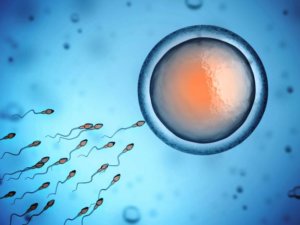We often take conception for granted, but the event itself is rather complicated
 Conception is an incredible thing and when we think of the bouncing baby boy or girl that may result, it makes us all warm and fuzzy inside. It just seems like having children is part of everyone’s master plan and easy enough to do.
Conception is an incredible thing and when we think of the bouncing baby boy or girl that may result, it makes us all warm and fuzzy inside. It just seems like having children is part of everyone’s master plan and easy enough to do.
But did you know that conception is relatively hard to come by? In any given month, couples age 29-33 with normal functioning reproductive systems have only a 20-25% chance of conceiving. After six months of trying, only 60% of couples will conceive without medical assistance.
Understanding how conception occurs
Why is Mother Nature so tricky? To understand, let’s take a look at the confluence of events and conditions between a man and a woman that must come together perfectly for their quest for a baby to actually occur:
The Woman: Must release a healthy, mature ovum, which must be picked up by a healthy, functional fallopian tube.
The Man: Must produce healthy sperm and deposit it in the vagina, near the cervical opening (once deposited, only about 10% of the sperm survive to penetrate the cervical mucous).
The Couple: Must have intercourse every other day around the time of ovulation, because sperm live for only about 48 hours.
Fertilization: Sperm must be good swimmers and relatively hardy. These tiny microscopic cells must make it through the cervix and through the uterus into the fallopian tube. One healthy sperm must breach the egg’s protective layers, including the cumulus layer and the zona pellucida.
The DNA: The fertilized embryo must receive the correct number of chromosomes from both the egg and the sperm. While some embryos with faulty DNA continue on with development (resulting in genetic disorders, such as Down’s Syndrome), most will discontinue cell division.
The Womb: The wall of the uterus must be healthy and ready to allow a fertilized embryo to implant.
Conception is truly a miracle
Whew! The fact that conception happens at all is truly a miracle. Failure of the sperm or egg to make an important connection anywhere along this complicated itinerary will prevent pregnancy from occurring. A host of issues can occur that put up roadblocks to conception: intercourse timing issues; ovulation failure; unhealthy sperm that can’t make the long, arduous journey to the egg; or damaged and blocked fallopian tubes.
And to complicate matters, genetic miscoding at fertilization will often lead to the embryo not implanting, or disintegrating soon after implantation. One estimate is that between 60 and 80 percent of all naturally conceived embryos are simply flushed out in women’s normal menstrual flows unnoticed. And the older a woman gets, the less chance she has of getting pregnant. According to the Association of Reproductive Medicine, a woman over the age of 40 has only a 5% chance or less of becoming pregnant naturally in any one month.
Finally, if that tiny little embryo is genetically viable and makes it all the way to the uterus, it can fail to implant if the environment proves unhealthy. Faulty hormonal signals can make the endometrium inhospitable to a growing embryo.
Conception can, indeed, be exasperatingly tricky. If you are having trouble conceiving, contact our fertility experts today.


